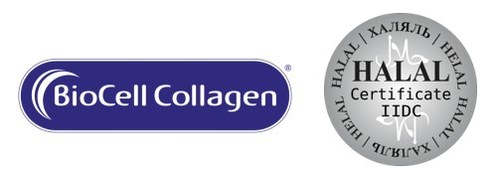By Abeer Anwaar – blockpublisher.com
United States 10th largest retailer, Albertsons became the newest addition in IBM’s Food Trust Network, which is powered by blockchain technology. The food industry is one of the innumerable industries that have embraced blockchain technology and Abertsons has joined the blockchain revolution.
Albertsons Companies is one of the largest retailers in the United States and has a strong presence at both the state and national level, with an impressive network of 2,300 stores across 34 states. According to the company’s press release, it will be using IBM’s platform to track supply chain of romaine lettuce; however, it will branch out to other products later on.
IBM’s blockchain-based food traceability platform went live last year in October after 18 months of testing with an aim to connect growers, processors, distributors and retailers through a permissioned, permanent and shared record of food system data. IBM Food Trust leverages the blockchain technology to create an unprecedented transparency and accountability in the food supply.
How is Blockchain Helping the Food Industry?
Consumers today are not just passive consumers, they demand quality products specified to their needs and value for money. This calls for transparency and accountability which is where blockchain comes in.
Product Labeling
Precise product labeling is crucial for any distributor as consumer’s preferences vary. Some people are strictly vegan, some prefer only organic produce and some consume only halal food. Even though such food items can be found neatly labeled and stacked in grocery stores, there is this question of credibility of these labels.
Blockchain on the other hand can ensure the integrity of the marketing claims and existing certifications. This can be coupled with a facility’s audit reports as they will be registered on a blockchain for the verification of claims. Consumers can rest assured that they are getting what they paid for because the company’s labeling is backed by a traceable, immutable blockchain system.
Food Recall
Every year there are a handful of people who suffer from foodborne disease. While some get off easy with stomachaches, others are not so fortunate and end up losing their lives as a price for take-out food. One of the key reasons as to why we still hear about such incidents is the inefficiency that comes with product recall. It simply takes far too long to isolate product recall or contamination issues in the supply chain.
It takes days even weeks for retailers to track certain food packages from the farm to store but with blockchain the tracing process can be brought down to mere seconds. This will help restaurants and grocery stores in the events of a foodborne illness outbreak because they will have the power to immediately carry out a trace and remove the product from the shelves.
Why is Albertson’s Joining the Network?
Albertsons Companies is planning to pilot the solution in order to help overcome the obstacles that have existed when a trace-back is initiated for a product like romaine. It is possible that Alberston chose the romaine lettuce particularly in light of E-coli breakout in 2018 that was linked to it. Anuj Dhanda, Chief Information Officer of Albertsons Companies, says:
Food safety is a very significant step. In addition, the provenance of the products enabled by blockchain — the ability to track every move from the farm to the customer’s basket — can be very empowering for our customers.
Furthermore, over five million food products now use blockchain technology as part of their delivery process; it could be transformational for Albertsons as well.
Other Companies Onboard IBM’s Food Trust
The leading European grocery chain, Carrefour, is also a member of IBM’s Food Trust Network. The chain joined the network so they could share data with their consumers. Carrefour enables its customer’s access to traceability information directly from IBM’s Food Trust through a simple scan of the QR code via their cellphones.
Swiss-headquartered food retail giant Nestle is also a part of the Food Trust network. The company jumped onboard the project in response to consumer demand for more transparency and trust.
The United States retail giant Walmart is also working with IBM to implement blockchain technology as part of their new safety requirements for its suppliers. It will also be utilizing blockchain to implement food traceability. Interestingly enough, Walmart was the first major grocery retailer to join IBM’s Food Trust network and even helped guide the design of the system.
IBM’s Other Blockchain Endeavors
IBM’s presence in the blockchain space isn’t unusual, the company is knee deep in blockchain projects, from financial services to supply chain, to retail and healthcare. It is now recognized as the leading enterprise blockchain provider. A study conducted by Juniper Research in 2017 found that IBM is regarded as having the strongest credentials in the blockchain sector, way ahead of its competitors Microsoft and Accenture.
In addition to food industry solutions, IBM is also providing solutions in other areas:
Global Trade
In order to facilitate global trade IBM has developed TradeLens which is a digital platform that empowers businesses and authorities along the supply chain with a single, secure source of shipping data, enabling more efficient global trade.
Trade Finance
Targeting the trade finance sector is the IBM Blockchain for Trade Finance which helps in building new trading partnerships. It also helps in uncovering new pools of liquidity and creating new business models specifically engineered to transform trade finance.
Cross Border Payments
IBM Blockchain World Wire makes global transactions easier and faster. This new financial rail can simultaneously clear and settle cross-border payments in near real-time.
Identity Protection
IBM is also exploring identity protection through IBM Blockchain Trusted Identity which is committed to creating a decentralized approach to identity management built on top of open standards. IBM is joining forces with Decentralized Identity Foundation (DIF), World Wide Web Consortium (W3C) and other standards groups to achieve this goal.
IBM’s Food Trust has grown to 80 clients in a rapidly expanding industry so far and it looks like the list is going to keep growing.




